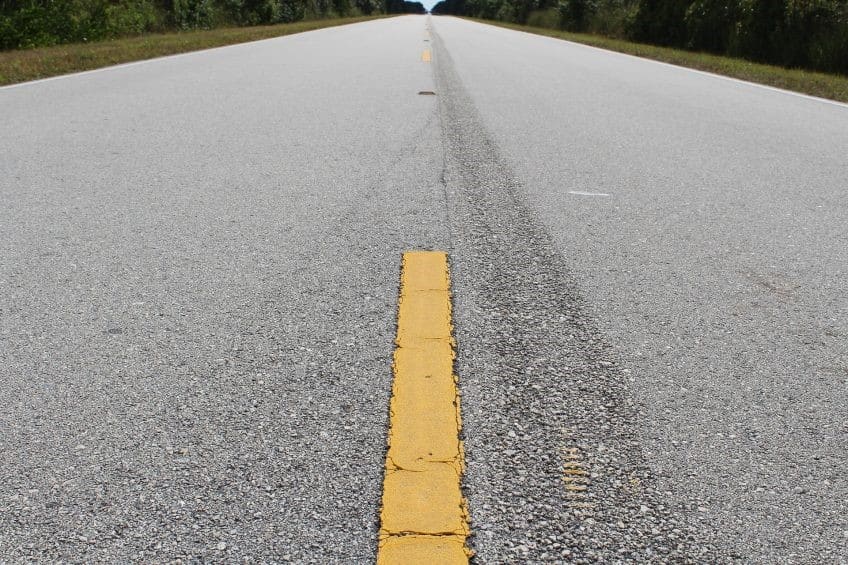Social Media And Your Personal Injury Case
The Insurance Companies Want To Check Your Social Media Accounts
For many people, social media is a way for them to “vent” their feelings in addition to staying in contact with friends and family. While this is what so many people love about social media, this is also what often gets people into trouble in a personal injury or medical malpractice case.
Your Facebook, Twitter, Pinterest, Tumblr, or LinkedIn account can be a data mining treasure trove for an insurance company to find evidence that will dispute what you say at your deposition in your case.
The Natural Tendency Is That No One Wants To Be Around Someone Who Is Always Negative
Let’s face reality. No one wants to be friends with someone who is negative all the time and no one is going to read someone’s negative posts for very long. If all you ever posted on your Facebook accounts were things about how difficult your life is, especially because of a car accident, then your friends would eventually stop looking at what you post and you would find yourself alone.
Therefore, someone who is injured in an accident and is suffering is still likely to be very “positive” on social media. If you are in that situation, you may even use being positive on social media as break from the reality of having an injury. This is exactly what the insurance company wants and will use against you if you bring a personal injury case.
Their goal is to show that you really aren’t as hurt as you say you are by what you post on social media. If you testify at your deposition that you suffer from anxiety, distress, or depression (relating to mental anguish) as a result of your accident but yet you posted pictures of you having a good time with friends, then they will attempt to use these posts to infer that you are less than truthful about your mental anguish claim (and therefore, if you are lying about mental anguish then they want the jury to infer that you don’t have a legitimate injury claim at all).
Just like your Miranda rights, what you say on Facebook can and will be used against you in a court of law.
Social Media Is Generally Discoverable Even When Your Account Is Set To Private
In the case of Nucci v. Target Corp., 162 So. 3d 146 (Fla. 4th DCA 2015), a plaintiff who tripped and fell at Target was ordered to disclose “photographs depicting [the plaintiff] from the two years before the date of the incident to the present.” This occurred after the plaintiff had almost 1,300 images on their social media account long before a deposition but had about 50 images less just two days before the deposition. The plaintiff’s explanation was that this was a result of changing settings to private, however, doing so piqued the curiosity of the defense and began the inquiry resulting in the order.
Generally speaking, information on social media is discoverable, however, there are some limits. The defense cannot simply go on a “fishing expedition”as they do not have “carte blanche” authority to discover “irrelevant material.” See Nucci, 162 So. 3d 146 and Root v. Balfour Beatty Construction, LLC, 132 So. 3d 867 (Fla. 2d DCA 2014).
The Florida Rules of Civil Procedure offer some guidance on what can be had and what cannot regarding electronically stored information. Rule 1.280(d) states the following as reasons why disclosure may not be had:
- not reasonably accessible because of burden or cost
- is unreasonably cumulative or duplicative
- possibly may be obtainable from another source in another manner that is more convenient, less burdensome, or less expensive
- the burden or expense of the discovery outweighs its likely benefit, considering the needs of the case, the amount in controversy, the parties’ resources, the importance of the issues at stake in the action, and the importance of the discovery in resolving the issues
Focus On How You May Be Perceived With Every Post
You should always keep in mind that it is not what you meant by saying something but instead what matters is how your message is received. Nothing could be more true when it comes to social media after an injury. For every post on social media after your injury, you need to consider how strangers (who are in charge of judging your personal injury claim) will view what you post. You should ask yourself:
- How will someone who doesn’t know me perceive this?
- Do I really want to explain this in a courtroom?
- Does what I am saying prove or disprove my injury case?
- Do I even need to post anything at all?
If what you post can be misunderstood or misconstrued, then you are at risk of having what you post hurt your case. For many, social media is almost addictive and the insurance companies know that a lot of people can’t resist the urge to tell everyone all about their accident.
As many have said, “the Internet never forgets.” You can delete posts or change posts but there are sometimes ways that Internet material can be recovered. In addition, retweets, mentions, tags, and comments may mention or link to material that thought was gone.
Vacations And Nights Out With Friends
Insurance companies love to find jurors who have not been on a vacation in years and those who do not have an active social life for your case, especially if you have picturesque images of your travels and you are all smiles at the bar on social media. This includes not only your own social media account but also others who may post something or identify you.
While the world shouldn’t be this way, there are a lot of jealous people in the world who will hurt you if they end up on your jury. Even if you have earned the “good life,” the insurance company will try to cut you down with jurors who have never had the “good life” and will not compensate you for the loss of that “good life” (as attorneys, we call this a “loss of the capacity for the enjoyment of life” and it is a legally recognized elements of damages).
“Party Admissions” In Florida Courts
In Florida, what a litigant says is admissible evidence against them called a “party admission” or “admission by a party.” This applies wherever you are, whoever you say it to, and whenever you say it. If you are a party to a lawsuit, whatever you have said can be offered against you.
The rule on party admissions is contained in section 90.803(18), Fla. Stat. below:
(18) ADMISSIONS.—A statement that is offered against a party and is:
Try To Avoid Oversharing
Before social media became prevalent, it was more difficult for an insurance company to find evidence that would contradict your claim that you are unhappy, depressed, or otherwise suffering after an accident. Their only way to do this was to follow you around with an investigator and get surveillance on your at the gas station, the grocery store, and at the gym.
While they still do that, social media gives them a continuous surveillance feed. By oversharing, you are feeding the information to them. They love it but you should resist the temptation to overshare if you can.
What Is Allowed And Not Allowed?
The Florida Bar has released ethics opinions 14-1 regarding this subject. Your lawyer can advise you to update your privacy settings so that your pages are not publicly accessible but you must preserve any “information relevant to the foreseeable proceeding” (those are the words of the Bar) that you remove. Essentially, you can update, make private, and change your social media postings (probably even take down things that you probably shouldn’t have said), however, you cannot do something that could later be construed as destroying evidence.
The Florida Bar Journal published an article in 2018 regarding the admissibility of social media posts. I have included a link to the article to help you out if you would like further information. Again, these legal implications should cause you to be mindful about your social media use when you have a personal injury case.
If You Need Help With Your Case, Give Us A Call
At Russo Law, we help people make claims for damages resulting from an injury or accident in Florida. If you have a Florida insurance claim that needs to made, give us a call for help. We help clients with personal injury issues in Polk County including Lakeland, Winter Haven, Bartow, and Haines City, Florida.


